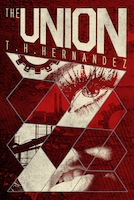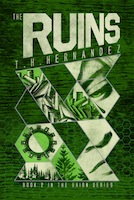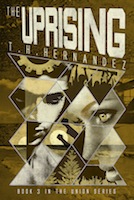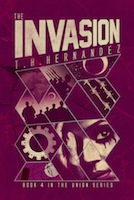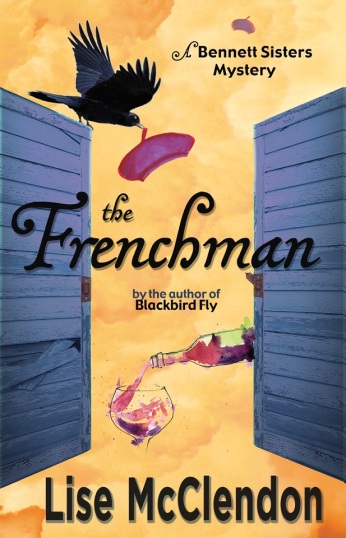
In this 5th installment of the Bennett Sisters Mysteries (beginning with Blackbird Fly), attorney Merle Bennett goes to France for an extended stay to drink in the essence of la France Profonde and write her own novel.
But the countryside is not as tranquil as she’d hoped it would be. A missing Frenchman, a sinister one, an elderly one, a thieving one, and a vandalizing one, all conspire to turn Merle’s sojourn of reflection into a nightmare of worry. Where is Pascal, her French boyfriend? Who is the man with the terrible scar? Why is someone spray-painting her little stone house in the Dordogne? And will her novel about the French Revolution (snippets of which are included) give her a soupon of delight or a frisson of danger?

So Merle has a Frenchman. Initially, like Merle, I didn’t see how a long-distance relationship with a man who lived across an ocean would work. How could she work in New York City and Pascal work all over France’s wine country and they continue a romance? Because, although I didn’t write the series as a romance, women have love affairs— have you noticed? And they like to read about them. Merle’s affair with Pascal might have just been a fling, a curative, that first summer. But as the series goes along it’s obvious that Pascal thinks of it as something more. Although Merle isn’t sure what he thinks— he’s a Frenchman and you know how they are— her feelings mature, especially in this fifth book.
Their relationship is an underpinning in the novels to intrigue, sisterhood, and the joys and trials of mid-life. The sisters range in age from 40 to 55, or so, and I try to find aspects of women’s lives that are interesting and challenging. Life can be hard but reading about how other women make choices and navigate the pitfalls is helpful and revealing to me, and I hope to readers.
As a writer you never know how readers will react to your characters. Will they think them weak and stupid for their choices? (Yes, I’ve had that review.) Or will they identify with them, cheer for them, hope for them? That’s what I live for, that identification from the reader. I am not an Everywoman myself. I am opinionated and cranky and sometimes not that nice. Also, funny, a good friend, a loving parent— I hope. We all have so many aspects. I see some of myself in each of the five Bennett Sisters. I am a middle sister myself though, that’s why Merle appeals to me.
I recently had a review of Blackbird Fly that made all the writing worthwhile. (I love that readers are still discovering the series.) A reader said “The main character, Merle Bennett, could have been me, though I’m not a lawyer, have never inherited a house in France, and never had her problems. The writing puts you in the book.”
Right there, that’s why I write.
Then, if you love France like I do, the reviewer says that for her, at least, I got something right: “I’ve spent enough time in France to know that Albert, Mme Suchet, and the others in the village who snubbed, helped, or sabotaged Merle are just so … French. The story unfolds just as it should along with Merle’s self-discovery and personal regrets.”
And so Merle’s journey continues in The Frenchman. Who is the Frenchman, you ask? There is of course Pascal, Merle’s Frenchman. But there are many more in this book, policemen and old villagers, young punks and charming neighbors. And in Merle’s novel, chapters of which are included in the novel, there are Frenchmen from the Revolutionary period: farmers and rebels, nobles and royals, villagers and strangers. I had such fun writing Merle’s novel— which will be fleshed out and published separately as well— about a goat-herder who flees the terror in Paris for a farm in the Dordogne. Merle calls it ‘Odette and the Great Fear,’ and it will be available soon as an e-book.
Thanks for the chance to discuss the Bennett Sisters Mysteries. I hope you enjoy reading them!
Review: The Frenchman
Lise McClendon’s The Frenchman is McClendon’s fifth novel in her Bennett Sisters Mysteries series. It is a frame story variation in that Merle, the protagonist, tells a story of her own throughout the mystery.
As McClendon’s story opens, Merle seems to be a bit lost within herself. She’s taking an extended leave from her work as a lawyer in New York in order to go to France and get started on her novel. Merle’s son, Tristan, is growing up and heading off to college this year, and her French boyfriend, Pascal, works a job that frequently keeps them apart for long periods of time and with little communication. Upon arrival in France, Merle finds herself with tangible insecurities as well – her house has been vandalized, and she has need for a vehicle but no knowledge of how to buy.
Meanwhile, Merle begins to write her novel, Odette and the Great Fear, and McClendon includes Merle’s chapters as stand-alone chapters within The Frenchman. Writing acts as Merle’s escape: “It was so comforting to live in another world where the mundane was an afterthought, where pain was just a word, where one had control of all events, and the author was a god.” (Kindle Locations 1356-1357). This comfort is better understood later, when McClendon’s mystery comes to light as Pascal disappears.
The Frenchman is as much a mystery novel as it is an exploration into the personal life of an author. McClendon’s character, Merle, strives to build her own character, Odette, in a seemingly reflected manner of McClendon’s own efforts to dive into Merle’s character. McClendon grants access into how a casual observation can play itself into a piece of detail, and skillfully reveals thought and emotion of her characters to her readers. Merle and Odette’s characters are tied together in a pleasant analogy.
The Frenchman is a delightful stroll through a grove of mystery, with a woven path through a light French countenance that makes for a formidable leisure read.
ABOUT THE AUTHOR
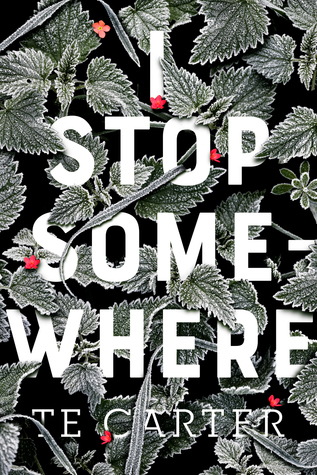

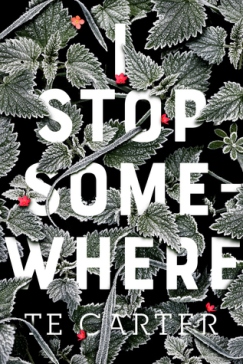


 Brand new from Alexandra Sokoloff comes Hunger Moon, the latest installment in The Huntress Moon Series (which is in development as a TV series!). The Huntress Moon Series is the product of years of screenwriting in Hollywood and wondering why most serial killers are men. Today, Sokoloff shares an excerpt from Hunger Moon, and writes to share what inspired The Huntress Series, and what has molded Agent Roarke’s character. As a fan of true crime and how psychology is involved (and also of small towns with neon hotel signs), I can only begin to try to communicate through my fingers how interesting this series sounds.
Brand new from Alexandra Sokoloff comes Hunger Moon, the latest installment in The Huntress Moon Series (which is in development as a TV series!). The Huntress Moon Series is the product of years of screenwriting in Hollywood and wondering why most serial killers are men. Today, Sokoloff shares an excerpt from Hunger Moon, and writes to share what inspired The Huntress Series, and what has molded Agent Roarke’s character. As a fan of true crime and how psychology is involved (and also of small towns with neon hotel signs), I can only begin to try to communicate through my fingers how interesting this series sounds.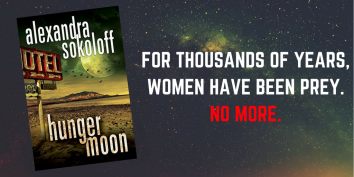 The fact is, one reason novels and film and TV so often depict women as victims is that it’s the stark reality. Since the beginning of time, women haven’t been the predators — we’re the prey. But after all those years (centuries, millennia) of women being victims of the most heinous crimes out there… wouldn’t you think that
The fact is, one reason novels and film and TV so often depict women as victims is that it’s the stark reality. Since the beginning of time, women haven’t been the predators — we’re the prey. But after all those years (centuries, millennia) of women being victims of the most heinous crimes out there… wouldn’t you think that 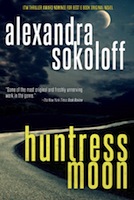
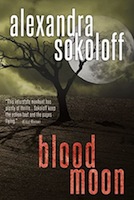
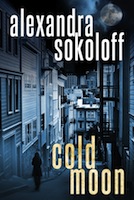
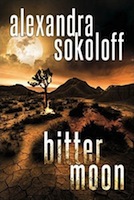


 After writing three more books in the series and outlining a fourth, I know my characters so much better. Even though they go through incredible growth throughout the series, they are essentially themselves, and I wanted them to sound that way.
After writing three more books in the series and outlining a fourth, I know my characters so much better. Even though they go through incredible growth throughout the series, they are essentially themselves, and I wanted them to sound that way.